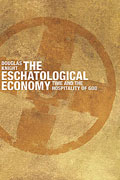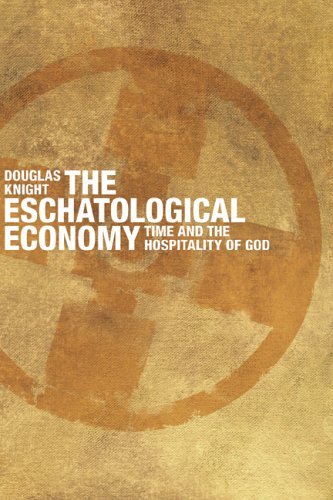
Dear Dr Knight
I am on my second reading of â??EEâ??. As a Lutheran layman I am a reader of First Things and Touchstone. My pastor and good friend has just left our Lutheran church and communion for the Church of Rome. About the time he announced his decision to leave, I ordered â??EEâ?? on a whim and a few reviews. I have found it to be an excellent work in addressing the problems of church division and modernity. I have been quite frustrated with the very questions you address: Creation, Israel, the work of the Holy Spirit, and how I raise my children in the midst of screaming cultural conversations. Thus my second reading. I am captivated by the bookâ??s premise of a Trinitarian theology in which God is bringing his people to a fullness and freedom through his dynamic work: Father, Son and Holy Spirit. I have often struggled in this highly individualized culture with how to participate in the life of God as Body of Christ and how the time afforded me fits with that of the fullness of that Body in its history. Thank you for your diligent work. It has helped to clarify much of what was bothering me so much. I shall probably have a number of questions â?? one of which I will ask you now. Do you have an outline of â??EEâ?? that would enable me to teach an adult class in my church? I really believe that Christians of all educational levels (and economic levels) are struggling with the questions your book so helpfully addresses. I intend on developing such a series of classes that relies on scriptural readings, parables, and questions pertinent to the development of an eschatology that informs faith and inspires Christian formation. Can you help me with this?
Sincerely your in Christ,
CG
* * * *
Dear Christopher
Many thanks for your wonderful mail.
Yes I do have an outline of The Eschatological Economy, though it needs more work. I have written a series of posts on EE for the blog and to post on Amazon. I will send you what I have, though I don’t know if it will help your class.
As for scriptural material for classes on eschatology that informs faith and Christian formation, I am working on that too. I have been putting together some chapters on Christian formation which I hope will be of some use to the church. I am going to call it The Apprenticeship, and it will cover much of the same ground as The Eschatological Economy, but more accessibly.
Everything that Christians say about time, history and the purpose of the world, which is that we come to share life with God, can be lumped together as eschatology. It is a catch-all for all the issues around our looking forward in hope and faith to his coming again in great glory. This means that we have to say that the world has a plot, but it doesn’t really know what it is, so there are two rival accounts of the plot â?? the worldâ??s and the Lordâ??s. There is a double history: secular history and salvation history. It is the Christian privilege to point out the difference between them. That is the line I would take with a class.
But there are many other and better people working in these areas, I commend their works to you. I have started to compile lists of books on my Amazon homepage, but it is a long job and James Merrick (there is a link from my blog) for example does it better than I do. You can find out what my suggestions are by looking through those lists. It would be a lot quicker than waiting for me to produce new material.
I don’t think there is any need to leave the mainline denominations, Lutheran, Presbyterian, Episcopalian, nor to feel abandoned when someone near, dear or senior does. There are many reasons why individuals might leave this or that congregation, but whether we leave or stay, the Christian life is always going to hurt, but we should always be glad of it.
We English used to think that we were in possession of the gospel: then we decided that we had seen through the gospel. Now we really don’t know what the gospel is, but are still too proud to say that it matters to us. So churches don’t run classes in England, and almost no one asks for classes. Where classes are run, by charismatic churches for example, they tend not to make connections between discipleship and intellect, and don’t see the intellectual side work as real work. The Christian here is a student without a teacher (or teacher without a class) – a sparrow on the rooftop. Thanks. If you want more, please ask me again.
Douglas
You can find out more about The Eschatological Economy at Amazon.com or at Amazon.co.uk or at Eerdmans


